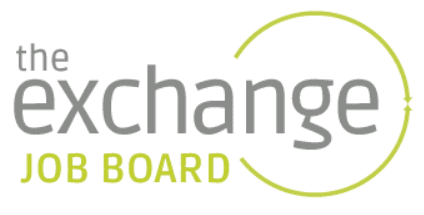
Recently, the New York Times article about Amazon’s “bruising” workplace made the rounds at Education Pioneers.
I’ve spent my career in education, but a lot of what I read about professional life in a tech behemoth sounded familiar. I recognized the best and worst of mission-driven cultures that I’ve seen in certain, though not all, charter schools.
The charter schools (and other education organizations) that “churn and burn” their staff happen to be some of the most effective at gap-closing work. Their grueling cultures are acknowledged in service of kids and justice.
To that, I say bravo. There are a lot of extremely smart, hard-working folks who continue to give their all in service to others—just take a look at some of the recent articles describing the education gains in New Orleans since Hurricane Katrina as evidence.
When millions of kids are achieving at dismally low levels, we can’t take our foot off the gas. A hard-driving pace is the only hope we’ve got of making significant, meaningful change for the kids who need it right now. (Plus, being a part of such school cultures can be extremely rewarding, for some. It was, at one time, for me.)
But—and there’s an important clarification here—we’ve got to build a better system. Burning through dedicated, talented people doesn’t serve our students best now or for the long-term.
I’m not talking about work/life balance either. If we focus on balance, we undercut the urgency of our work.
Instead, I’m talking about serving all young people exceptionally well, and then innovating a system around that—a system that enables us to do what it takes for students while keeping our human-powered industry motivated and cared for.
It’s a challenge that I wrestle with frequently as an education leader, and I know I’m not alone.
At EP, we’re committed to taking the best from all sectors, seeing what’s applicable to education, adjusting as necessary, and then making it work for the kids and families we serve. Here are three ideas that resonated from the piece about Amazon:
First, let’s embrace a respectful, challenging culture. I’m a big fan of conflict and challenging ideas, and we’ve just skimmed the surface of this practice with the “say the thing” practice at EP. A culture of challenging ideas is good for organizations and for disrupting the status quo.
Particularly in the education sector, when so much is at stake, we can’t afford to let a culture of “nice” win out over a culture of excellence for kids and families. That being said, no culture will thrive if disrespect is modeled or tolerated. Productive conflict can and should be healthy.
Here in New Orleans, Collegiate Academies, which operates the top-performing open enrollment high schools in the city, has implemented the ideas outlined in the management book, Death by Meeting. They’re systematically building respectful feedback, challenge, and conflict into their meetings so that they continually grow and learn. It’s part of their DNA to challenge ideas, and it’s working.
Second, mission-driven isn’t mean. Passion and service to a mission often sacrifices personal time and goals. The gap-closing work done in schools is clearly one worth sacrificing for, if only for a limited time. But no one can justify the dehumanizing, insensitive acts described in the article about Amazon.
The best leaders I know in education are those who inspire their teams to do more, and give more than they ever thought possible, while also building a culture of growth and respect.
Finally, there’s room for innovation and rethinking how we “do” school. The vast majority of effective gap-closing school models I’m aware of push adults to similar limits that are described in the Amazon article. But there are a lot of education organizations that are finding solutions – they’re building new systems to make what’s necessary for the work also sustainable.
Beginning this year at Firstline Schools in New Orleans, teachers will only teach four days a week. On the fifth day, they’ll plan and collaborate. They’ve acknowledged that putting in long hours is necessary but also unsustainable, so they restructured to meet students’ and staff needs.
The tech world is full of innovative solutions that are making teachers and leaders’ lives easier. Kickboard, another shout out to New Orleans, was created by a high-school math teacher (and computer science major) in response to fellow teachers feeling they were drowning in student data. Kickboard was created to solve that problem, and give teachers a better, more efficient way to access and use critical information about their students.
The team at 4.0 Schools, a local education incubator, has built a culture around supporting hunches for how we might rethink and redefine “school.” There can always be a better way—if we build it.
I’ve seen the results of student performance levels that demand a grueling pace to drive dramatic improvement. On the other hand, I’m a former school leader. I’m married to a teacher. I get it. I know why sustainability is important.
But I believe that nothing great is accomplished in this world without passion or over-the-top commitment. The crazy dreamers, the people who really create things—they’re not thinking about balance. They’re thinking about changing the world.
 |
Michael Richard /reeshard/ is the Director, New Orleans for Education Pioneers and a former school leader and teacher. He is a committed advocate for equity in educational opportunities and especially devoted to supporting the continued compelling educational transformation taking place in New Orleans and around the country. |
By Michael Richard, August 27, 2015



